Cash is not king, but are we risking 'digital exclusion'?
The reign of cash as ‘king’ of mobility payments may be over. With the rising popularity of mobile and contactless payments, some argue it’s time to move to digital payments and cut ties with cash altogether. It’s a divisive subject, however, raising concerns about removing payment choice – or worse, excluding those who can’t or won’t pay digitally.
In the UK, Levelling-Up Secretary, Michael Gove, urged councils earlier this year to keep cash options at parking meters, rather than forcing the use of mobile apps, so that no-one in society is left behind.

He argued, “All local authorities have existing statutory duties to ensure that they do not discriminate against older people or those with vulnerabilities.”
Despite this, a recent survey by British motoring organisation the RAC of almost 2,000 members, found that one-in-five drivers said their councils want to make mobile phone payment compulsory in public car parks. Almost two-thirds (59%) were angry about the loss of coin and card payment options, with the number rising to 73% of drivers aged over 65.
Speed and simplicity of digital payments
In mobility systems, the benefits of cashless payments are widely known. For passengers willing to use contactless or mobile payments, transaction times are faster, there’s no time wasted queuing for tickets, or fumbling to find the right money. It’s easy to understand tariffs and fares and view transaction and travel histories using customer portals and apps.
For operators, being cash-free makes for a leaner, more efficient business model. They can cut the considerable cost involved in cash handling. In addition, digital payments, whether contactless or mobile, are trackable, bringing operators an enormous, valuable pool of data they can dive into to understand customer behaviour and design better services.
A wholly digital payments system would have compelling benefits for operators and many of the people who use their systems. But not all of them. And if we believe that social inclusion needs to remain a core principle of mobility networks, then this is best served by systems that offer a choice – of how to pay and when to pay (before, during or after travel) – and access to concessions linked to your personal status (for example, as a Senior).
No "winner takes all"
This month, on LinkedIn, we asked our audience to weigh-in on the future role of cash in the mobility ecosystem. The response to our poll was split. Over two thirds, 68%, said “cash must stay to be inclusive”, while 32% said “it is time to go fully digital”.
Comments suggested that cash is not the only option for those who don’t have a bank card or a smartphone – transit smart cards, for instance, can be topped up using cash. Others made the point that it’s not necessarily the case that contactless EMV can’t provide ID-linked concessions – as there are new ways to get around this with white label EMV cards.
The subject is complex, and in the battle between cash and digital payments there is no hands-down “winner”. At Flowbird, our view is to continue to modernise the user experience, while also offering payment choice. We continue to innovate sleek UIs for terminals, ticketing machines and mobile apps, supporting multiple payment methods and tokens. In our mission to make mobility effortless, we maintain a duty of care to ensure access for everyone.

 International
International  Downtown West Chester Updates Its Parking System with Modern Payment Solutions
Downtown West Chester Updates Its Parking System with Modern Payment Solutions  Flowbird Garage Success Leads to On-Street Parking Expansion in Beverly Hills
Flowbird Garage Success Leads to On-Street Parking Expansion in Beverly Hills  The City of Leavenworth Updates Its Parking System with Effortless Parking Solutions
The City of Leavenworth Updates Its Parking System with Effortless Parking Solutions  Nouméa Modernizes Its Parking System with the Installation of New Flowbird Parking Meters
Nouméa Modernizes Its Parking System with the Installation of New Flowbird Parking Meters  SEPTA Partners with Flowbird to Launch Advanced Commuter Parking System
SEPTA Partners with Flowbird to Launch Advanced Commuter Parking System  Flowbird ticketing technology alights at Belfast Grand Central Station
Flowbird ticketing technology alights at Belfast Grand Central Station  Dallas Area Rapid Transit (DART) Partners with Flowbird to Modernize Transit System
Dallas Area Rapid Transit (DART) Partners with Flowbird to Modernize Transit System  Flowbird Group Secures 10-Year Contract to Revolutionize Warsaw’s Parking Infrastructure
Flowbird Group Secures 10-Year Contract to Revolutionize Warsaw’s Parking Infrastructure  Rochester Updates Its Parking System with 3 New User-Friendly Solutions
Rochester Updates Its Parking System with 3 New User-Friendly Solutions  Pittsburgh Regional Transit Partners with Flowbird for Fare Payment Solution
Pittsburgh Regional Transit Partners with Flowbird for Fare Payment Solution  Flowbird Successfully Delivers Advanced Parking Solutions to City of Poznań Road Department
Flowbird Successfully Delivers Advanced Parking Solutions to City of Poznań Road Department  Parking terminals reimagined – a smart way to reinvent on-street parking technology
Parking terminals reimagined – a smart way to reinvent on-street parking technology  Flowbird Systems Go Live in Madeira
Flowbird Systems Go Live in Madeira  The next poster cities for mobility
The next poster cities for mobility  What politicians and policy makers need to know about MaaS
What politicians and policy makers need to know about MaaS  MaaS start small and scale up
MaaS start small and scale up  Flowbird Pay-by-Plate Pay Stations Launch in the City of New York
Flowbird Pay-by-Plate Pay Stations Launch in the City of New York  Lyon chooses Flowbird for the implementation of its new progressive parking policy
Lyon chooses Flowbird for the implementation of its new progressive parking policy  Is MaaS an essential foundation for liveable cities?
Is MaaS an essential foundation for liveable cities?  Wyre Forest District Council car parks to have electric vehicle (EV) chargers installed
Wyre Forest District Council car parks to have electric vehicle (EV) chargers installed  Flowbird Supplies 500 Pay and Display Parking Meters in Bratislava!
Flowbird Supplies 500 Pay and Display Parking Meters in Bratislava!  MaaS: What cities need to do to make it work
MaaS: What cities need to do to make it work  Charleston, SC Updates Its Parking System with Effortless Digital Solutions
Charleston, SC Updates Its Parking System with Effortless Digital Solutions  Clearwater, Florida Launches Pay by Text Solution – No App or Account Required
Clearwater, Florida Launches Pay by Text Solution – No App or Account Required  Carlisle, PA To Update Its Parking System with User-Friendly Solution in 2024
Carlisle, PA To Update Its Parking System with User-Friendly Solution in 2024  Open Payments Launched In Toulouse – Contactless Card Validation!
Open Payments Launched In Toulouse – Contactless Card Validation!  Flowbird and Semitan join forces to make mobility effortless!
Flowbird and Semitan join forces to make mobility effortless!  Meet the Team: David Thompson
Meet the Team: David Thompson  Solving traffic flow – what politicians and policymakers need to know
Solving traffic flow – what politicians and policymakers need to know  The future of the roadside curb
The future of the roadside curb 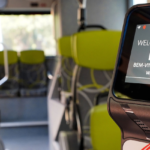 The future of the passenger experience and why effortlessness is the key
The future of the passenger experience and why effortlessness is the key  A guide to your city’s passengers: What you need to know
A guide to your city’s passengers: What you need to know  The 4 roadblocks in your city’s e-mobility plan
The 4 roadblocks in your city’s e-mobility plan  The road to zero-emissions cities (and, the parking when we get there)
The road to zero-emissions cities (and, the parking when we get there)  Why wait to decarbonise our regions?
Why wait to decarbonise our regions?  Flowbird Group takes a step forward in reshaping mobility through a strategic acquisition by EasyPark Group
Flowbird Group takes a step forward in reshaping mobility through a strategic acquisition by EasyPark Group  Park&Charge: Meet our expert
Park&Charge: Meet our expert 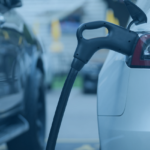 Flowbird gives cities a fast-track to e-mobility readiness
Flowbird gives cities a fast-track to e-mobility readiness 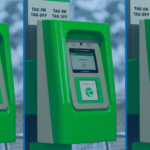 Coming soon to Perth: ‘tap to ride’ with your bank card or device
Coming soon to Perth: ‘tap to ride’ with your bank card or device  What’s next after open-loop transit payments?
What’s next after open-loop transit payments?  What would motivate you to use your car less?
What would motivate you to use your car less? 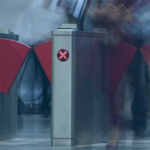 How to Boost the Efficiency of Fare Collection
How to Boost the Efficiency of Fare Collection  Lothian Buses new record: 100,000 taps in a day!
Lothian Buses new record: 100,000 taps in a day!  Smart Transport Ticketing: Benefits for Operators and Passengers
Smart Transport Ticketing: Benefits for Operators and Passengers 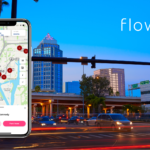 Flowbird App Empowers Tampa’s Parking Experience with Multi-App Integration
Flowbird App Empowers Tampa’s Parking Experience with Multi-App Integration  Meet the team: Justin Pounder
Meet the team: Justin Pounder  Flowbird, Umojo Partner for Off-Street Solution in Portand
Flowbird, Umojo Partner for Off-Street Solution in Portand  Cash versus digital payments in mobility systems
Cash versus digital payments in mobility systems  Flowbird teams up with Zuora to advance digitalisation and growth
Flowbird teams up with Zuora to advance digitalisation and growth  Flowbird app & Pay by Text now available in Sewickley!
Flowbird app & Pay by Text now available in Sewickley!  FabMob and Flowbird lead the way for accessible, sustainable mobility
FabMob and Flowbird lead the way for accessible, sustainable mobility  Passenger apps: Take 5 operator benefits
Passenger apps: Take 5 operator benefits  Contactless Interac Debit fare payments launch on Laval buses
Contactless Interac Debit fare payments launch on Laval buses  Edinburgh tramline extended to provide a route across the city
Edinburgh tramline extended to provide a route across the city  Take 5… Transport authority benefits of Account Based Ticketing
Take 5… Transport authority benefits of Account Based Ticketing  Parkex | Birmingham | 2023
Parkex | Birmingham | 2023  Flowbird Partners with the City of Minneapolis to Launch New & Improved MPLS Parking App
Flowbird Partners with the City of Minneapolis to Launch New & Improved MPLS Parking App 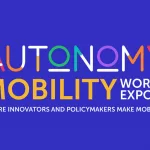 Flowbird presents its vision for connected urban mobility at AMWE in Paris
Flowbird presents its vision for connected urban mobility at AMWE in Paris  Clermont Ferrand makes the move to open payments on transport
Clermont Ferrand makes the move to open payments on transport 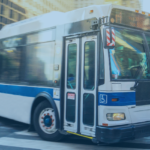 Flowbird’s transport talking points at Transport Ticketing Global
Flowbird’s transport talking points at Transport Ticketing Global 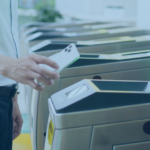 Take 5… Operator benefits of open payments in transport
Take 5… Operator benefits of open payments in transport  Flowbird envisions the transport ticket of tomorrow
Flowbird envisions the transport ticket of tomorrow  Ticketing & payments – a vital enabler of National Bus Strategy
Ticketing & payments – a vital enabler of National Bus Strategy  Flowbird announce new additions to the management team further to accelerate growth ambitions within the UK parking sector
Flowbird announce new additions to the management team further to accelerate growth ambitions within the UK parking sector  New London Brings Additional Convenience Parkers with Flowbird App
New London Brings Additional Convenience Parkers with Flowbird App  Podcast: Will transport payments drive a MaaS revolution?
Podcast: Will transport payments drive a MaaS revolution?  Take 5… Passenger benefits of open payments on transport
Take 5… Passenger benefits of open payments on transport  South Orange Parking Authority Updates Its Parking System with User-Friendly Solution
South Orange Parking Authority Updates Its Parking System with User-Friendly Solution  New ParkNYC App Proves to be Unrivaled Success in First 30 Days
New ParkNYC App Proves to be Unrivaled Success in First 30 Days 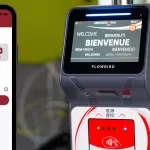 Monapass – One App, One Account, for Open Ticket Mobility
Monapass – One App, One Account, for Open Ticket Mobility  Translink Milestone for National Account Based Ticketing System for Northern Ireland
Translink Milestone for National Account Based Ticketing System for Northern Ireland  Flowbird Announces New CEO
Flowbird Announces New CEO  Flowbird unveils Off-Street Solution at IPMI 2022
Flowbird unveils Off-Street Solution at IPMI 2022  Flowbird is featured in the “Ticketing in Mobility as a Service” handbook published by UITP & STA
Flowbird is featured in the “Ticketing in Mobility as a Service” handbook published by UITP & STA  Flowbird Group acquires Your Parking Space
Flowbird Group acquires Your Parking Space  Transport Ticketing Global | London | 2022
Transport Ticketing Global | London | 2022  AIPARK Pdays | Florence | 2022
AIPARK Pdays | Florence | 2022  Ontario Transportation Expo | Toronto | 2022
Ontario Transportation Expo | Toronto | 2022 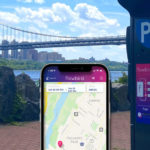 Flowbird Implements Automated Parking System To Palisades Interstate Parks
Flowbird Implements Automated Parking System To Palisades Interstate Parks  Smart City Forum | Warsaw | 2022
Smart City Forum | Warsaw | 2022  Birmingham Jefferson County Transit Authority Partners with Flowbird
Birmingham Jefferson County Transit Authority Partners with Flowbird  PARKEX | Birmingham | 2022
PARKEX | Birmingham | 2022  EVS35 | Oslo | 2022
EVS35 | Oslo | 2022  European Mobility Expo | Paris | 2022
European Mobility Expo | Paris | 2022  Konferencja SPP | Grudziądz | 2022
Konferencja SPP | Grudziądz | 2022  Svepark Conference | Gävle | 2022
Svepark Conference | Gävle | 2022  Milipol Qatar 2022
Milipol Qatar 2022 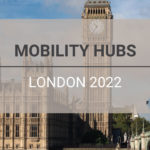 Mobility Hubs | London | 2022
Mobility Hubs | London | 2022  MILIPOL Qatar | Doha | 2022
MILIPOL Qatar | Doha | 2022  A look back at the PACE 2022
A look back at the PACE 2022  Thank you for visiting us at Intertraffic Amsterdam
Thank you for visiting us at Intertraffic Amsterdam 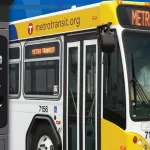 Flowbird Group to Expand Off-Board Fare Payments for Metro Transit
Flowbird Group to Expand Off-Board Fare Payments for Metro Transit  Intertraffic | Amsterdam | 2022
Intertraffic | Amsterdam | 2022  Flowbird completes first ever local authority Electric Vehicle charge point project for Wokingham Borough Council
Flowbird completes first ever local authority Electric Vehicle charge point project for Wokingham Borough Council  Podcast: the rise of open payments in transport
Podcast: the rise of open payments in transport 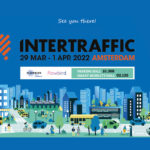 See you soon at Intertraffic Amsterdam 2022!
See you soon at Intertraffic Amsterdam 2022!  Flowbird is excited to share with you the latest news about Hong Kong!
Flowbird is excited to share with you the latest news about Hong Kong! 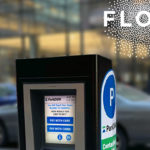 City of Des Moines upgrades to smart multi-space technology with Flowbird Group
City of Des Moines upgrades to smart multi-space technology with Flowbird Group 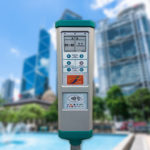 Flowbird trusted by HKT for their Smart City program
Flowbird trusted by HKT for their Smart City program 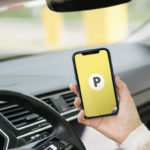 Flowbird announces a licensing agreement with Concar
Flowbird announces a licensing agreement with Concar  Mobility Awards City Rail & Transport
Mobility Awards City Rail & Transport  A great strategic win in Hamburg
A great strategic win in Hamburg 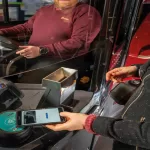 Lothian Adopts Weekly Capping with Support from Flowbird
Lothian Adopts Weekly Capping with Support from Flowbird 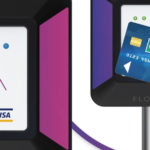 Tisséo, Flowbird and CIC deploy Open Payment in Toulouse
Tisséo, Flowbird and CIC deploy Open Payment in Toulouse 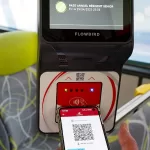 International Spotlight falls on MaaS in Monaco
International Spotlight falls on MaaS in Monaco 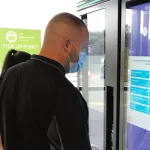 Northern Completes Major UK On-Station Rail Retailing Rollout
Northern Completes Major UK On-Station Rail Retailing Rollout  Flowbird Transforms Urban Mobility in Monaco
Flowbird Transforms Urban Mobility in Monaco 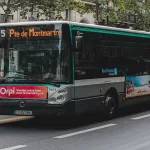 Conduent Transportation and Flowbird Selected to Equip Paris Ile-de-France Mobilités’ Buses and Trams with Next-Generation Onboard Ticketing Platform
Conduent Transportation and Flowbird Selected to Equip Paris Ile-de-France Mobilités’ Buses and Trams with Next-Generation Onboard Ticketing Platform  Flowbird’s Open Payments Expertise Wins Innovation Award
Flowbird’s Open Payments Expertise Wins Innovation Award  STL teams up with Flowbird and other new business partners to deliver a Québec First ― Next-generation credit card payment solution on all Laval buses
STL teams up with Flowbird and other new business partners to deliver a Québec First ― Next-generation credit card payment solution on all Laval buses  Flowbird Extends Ticketless Parking Across Transperth SmartRider Network
Flowbird Extends Ticketless Parking Across Transperth SmartRider Network 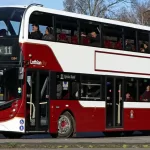 One million ‘taps’…and counting
One million ‘taps’…and counting 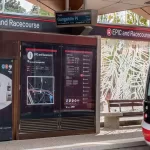 Canberra Launches Smart City Light Rail Network with Flowbird Technology
Canberra Launches Smart City Light Rail Network with Flowbird Technology  Flowbird Releases Mobile Ticketing App – ‘Loop Trolley’ App is Now Live in St. Louis, Missouri
Flowbird Releases Mobile Ticketing App – ‘Loop Trolley’ App is Now Live in St. Louis, Missouri 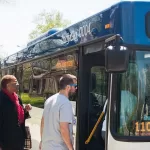 IndyGo Partners with Flowbird to Modernise Fare Collection System
IndyGo Partners with Flowbird to Modernise Fare Collection System  Transperth Extends Partnership with Flowbird Transport Intelligence
Transperth Extends Partnership with Flowbird Transport Intelligence 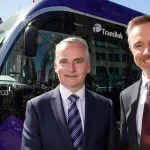 World-class ticketing system glides into Belfast
World-class ticketing system glides into Belfast  Edinburgh Trams Taps into Contactless Benefits
Edinburgh Trams Taps into Contactless Benefits 